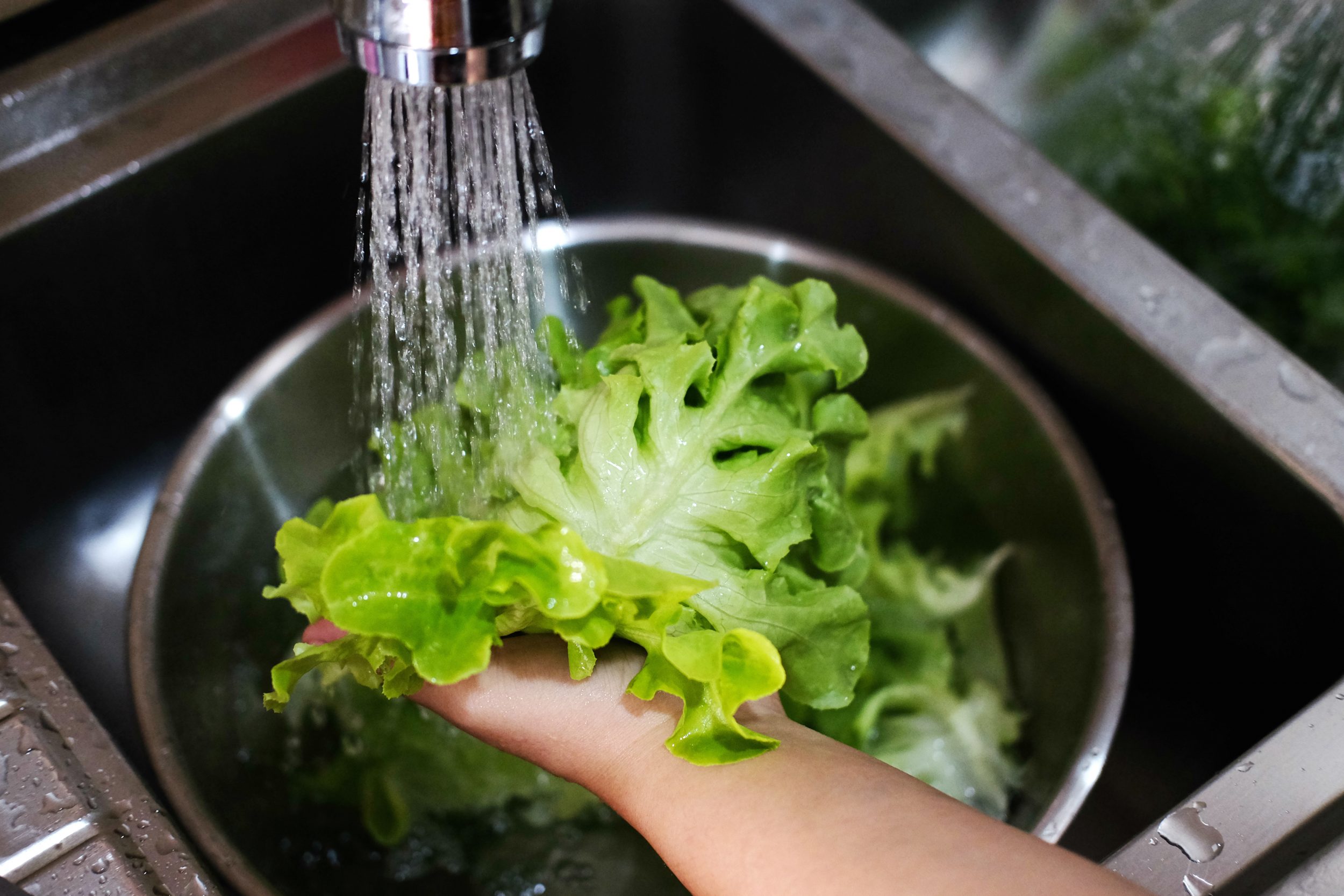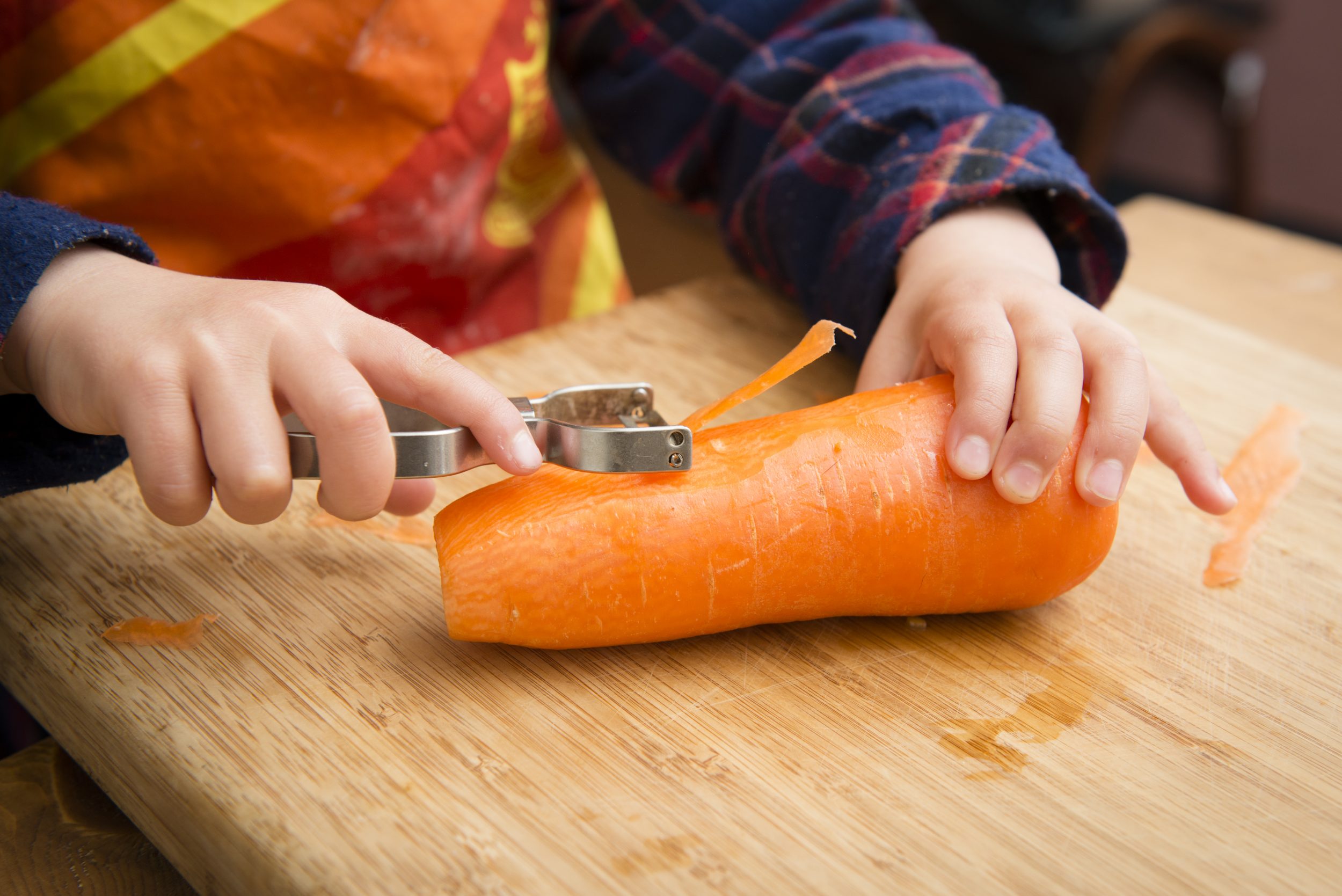Important tips for cleanliness and hygiene
It is important that you protect yourself and your child from infections. This is important during pregnancy, when breastfeeding and in everyday life. It is therefore important that your kitchen is clean. Also pay attention to cleanliness when you buy, store and prepare food. Cleanliness in the kitchen: Wash your and your child's hands regularly: before and after preparing food, before eating, after contact with animals, after gardening, after going to the toilet. Use clean towels to dry your hands. You can also use disposable towels. Swap ...
Complementary food checklist
Help with choosing products if you don't cook yourself Shopping guide (several times) a dayPeriments with vegetables, fruit, cereals/potatoes as the sole ingredient or mixed daily from 6 months of age Tip: It is best to use cereal porridges for mixing (instant) and add milk, yoghurt or buttermilk yourself. several times a weekporridge with meat either2 to 3 times a week approx. 75 g meat preparation (pureed meat from a jar). Tip: Add mash with vegetables, potatoes or cereals to this meat mash. or5 times a week jarred meals with meat. Note: Vegetables, potatoes or ...
Play, run, move
Children should get as much exercise as possible, preferably outdoors. Your child should play outside for at least 1 hour every day. Your child can run, jump, climb or play ball, whatever they like to do at their age. If your child sits for longer than 1 hour, they should move around. Tell your child to get up and play or walk a few steps. If your child spends time in front of a screen, they should do some exercise afterwards. This balances out the sitting. Regular physical activity is important for many things: exercise helps build healthy bones, muscles and ...
Moving is fun!
Children should do as much exercise as possible. Preferably outdoors. Exercise is fun and improves children's movement sequences. Movement is good for dexterity. Especially difficult or varied types of movement, such as climbing, playing with a ball or moving to music. Children need to learn about dangers and risks. They need to learn what to do in a dangerous situation. They can only learn this from experience. Therefore, do not interrupt your child when they are trying out different types of movement. Only intervene if there is a serious risk. This is how you as parents can support your toddler's activity: ...
Does my child have an allergy or an intolerance?
Only a few children have allergies or intolerances to certain foods. If you believe that your child cannot tolerate certain foods, have a medical examination carried out. Do not leave food out for long periods of time if there is no medical confirmation of an allergy or intolerance. This could put a strain on your child if it does not get enough important nutrients. It could even be detrimental to their health. If your child has an allergy or cannot tolerate certain foods, seek professional advice. See a doctor or other nutritional specialist. For example, a dietician. This advice is useful to ensure that your child gets enough nutrients to ...
Vegetarian and vegan diet
You can also feed your child a permanent vegetarian diet, i.e. no meat or fish. If you eat animal products such as milk, dairy products and eggs, this is a sufficient diet. However, make sure that your child has a varied diet. It is also important that they get enough iron and zinc. A purely vegan diet for children is not recommended. This is a diet completely without animal products. Your child is unlikely to get enough nutrients from such a diet. If you still want to feed your child a vegan diet, seek advice from a specialist who has the appropriate training.









